Donald Trump: The view from Detroit
- Published
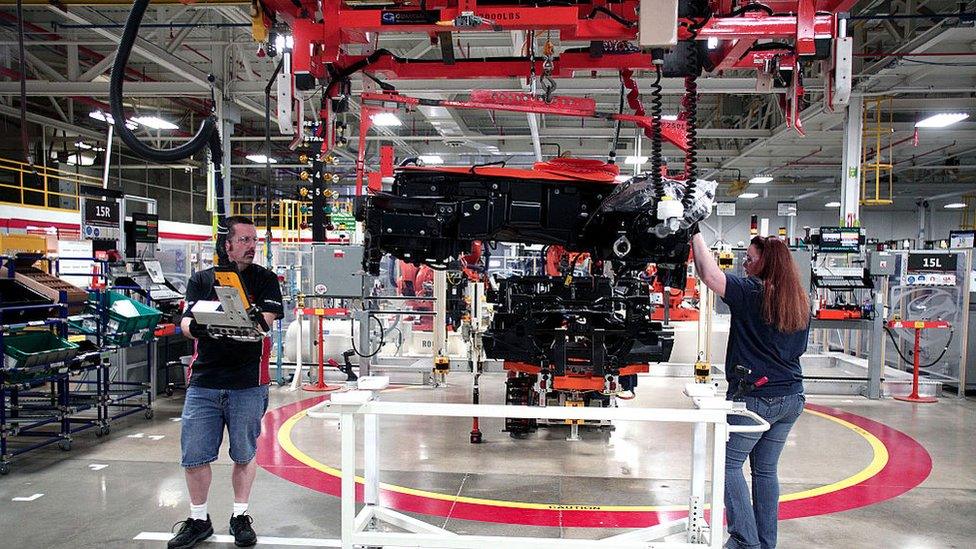
Can Donald Trump make America not just great again, but make it gleam and bring the shine of steel back to the rustbelt?
In the past I have driven through some of the areas so described and its no idle metaphor. There are mile upon mile of oxidised, red metal skeletons, dead factories entombing dead jobs, dead hopes.
But the Interstate 75 road outside Detroit is a reminder that manufacturing industry could just be America's future and not only its past.
Towers and gantries poke up into the skyline, plumes of steam billowing white against a grey sky from dozens of chimneys: little lights, appropriately red and white and blue, blink with brisk industrial efficiency. This is the home of Motown - Motor City - famous for its music and its cars.
Eight years after a heart-stopping crisis for the motor industry Detroit is working again. Some say that is thanks to Obama. Others look to Mr Trump to make it what it once was again.
I am talking to Brian Panbecker in his car opposite Detroit's Ford plant. He's a forklift truck driver and he is just about to go on shift.
"Life around Detroit is always cyclical, up and down. My dad warned me when I was first hired in by Chrysler back in 1978. He said 'Brian, the auto industry is up and down. It is like a rollercoaster. When times are good you have to work overtime, save some money, pay off all your debts. When times are bad you have to ride it out'."
He says Mr Trump speaks the language of the shop floor - sometimes crude and vulgar but straight to the point. And many of those Brian works with support him as a result.
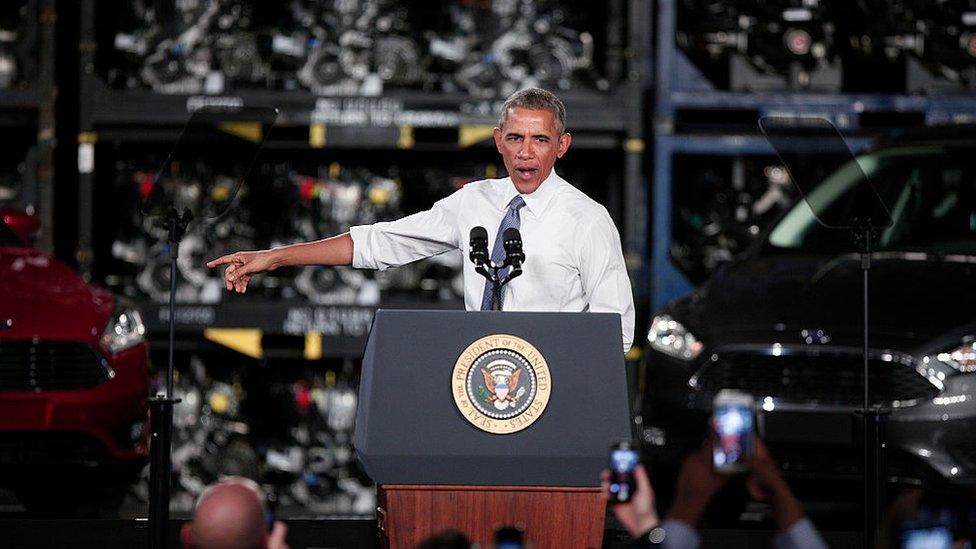
President Obama oversaw a major bailout of the US automobile industry
President of the 3000 branch of the United Automobile Workers union, Steve Gonzalez, tells me there are plenty who agree with Brian.
"Some of our members are Donald Trump supporters. I can't get into their heads but a lot of our workers were for him. Not sure if it was the promise of change, or his appeal on TV, little quips, on Facebook, on Twitter. People run with that."
But didn't President Obama and the bailout of Chrysler and GM save this city?
I meet Thomas in a trendy brewery pub. Bit of a waste as he does not drink, and I am not doing so at the moment. Still the brewery logo, of a heroic worker raising a glass, says something about this unionised city.
"I lost a job and I wasn't capable of relocating and because Obama saved this industry I got a job," he explains. The bailout "stopped GM and Chrysler being sold off to companies who would have split it up and sold it for parts. And that is what saved the industry".
I ask if he is better off than in 2008 and he replies: "I'm not broke and would have been."
Brian could not disagree more.
"The bailouts did not save the auto industry, bankruptcy saved the auto industry. That allowed GM and Chrysler to survive in some form and return to profitability. I would not give credit to Barack Obama. As a matter of fact, I think his policies - continuing high taxes and allowing the unions to remain powerful - have caused more jobs to flee to Mexico."
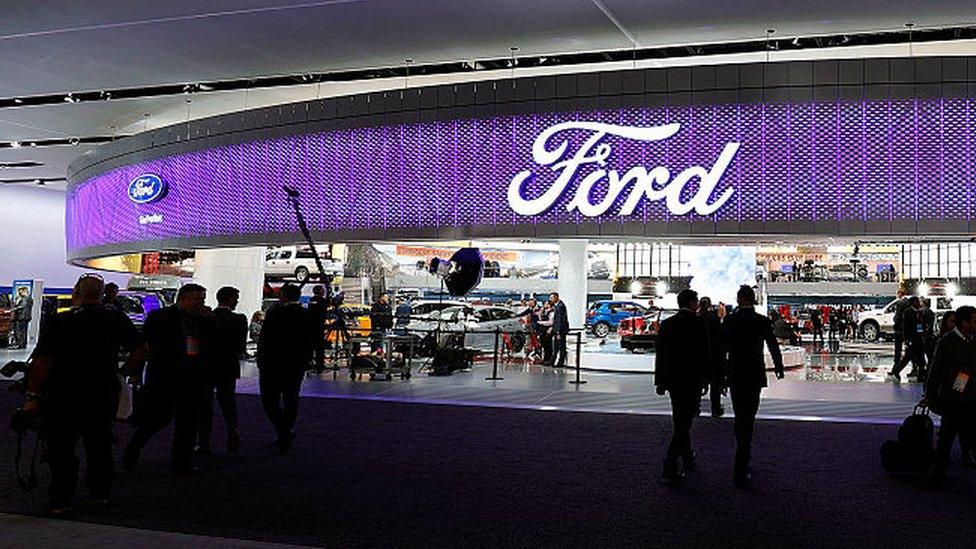
Ford was one of many manufacturers represented at the 2017 North American International Auto Show
I am in Motor City at a big time of year for the industry - the North America International Auto Show 2017 has just opened. It is a huge sparkly, bright white space where cars rotate on their stands, polished so hard the lights positioned just so that they seem to glow, rather than simply gleam.
Despite the symbols of success and prosperity at the show and despite the health of the industry, the American worker feels insecure.
The Ford stand at the show is particularly impressive but I am drawn to a prototype, a silver car. Not particularly special looking - apart from the round cameras on its windscreen and roof rack-like sensors running along its length. On its side it says "autonomous vehicle development" and underneath "on the road by 2021".
Ford made an important announcement at the beginning of this year - they would invest $700m (£580m) in a plant just outside Detroit, a few miles from here, to make an electric SUV and driverless car.
And - this is where the politics comes in - they would cancel their plan to build a new engine plant in Mexico, something Mr Trump had called "an absolute disgrace", He thanked Ford and said it was only the beginning.
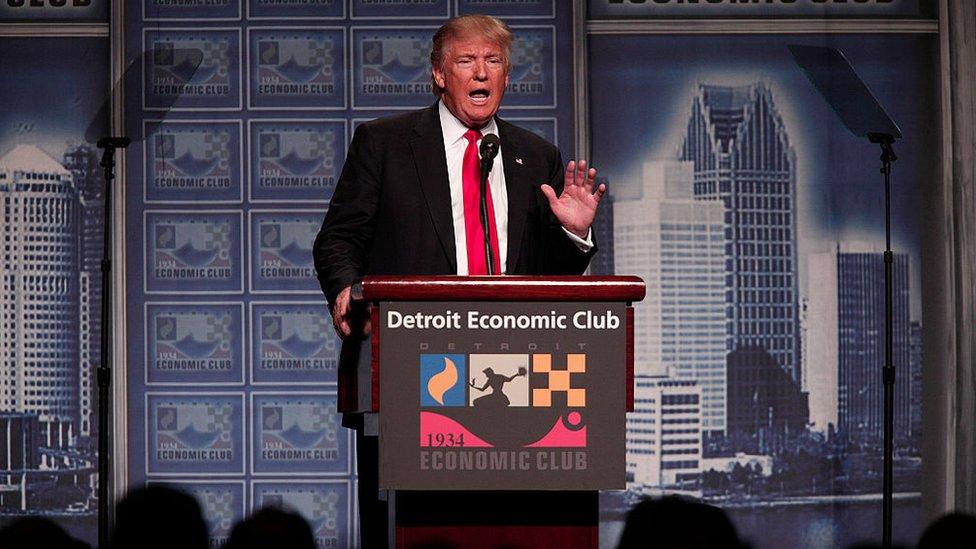
Donald Trump has pledged to impose tariffs on goods produced outside the US
So, has Mr Trump's policy of imposing tariffs on goods made outside the USA - mocked as impractical by many - already paid off, before he is even in the White House?
Darrin thinks not. He is a newly-elected Democratic representative in Michigan's state house - and says without the bailout he would not be where he is now. His dad was an auto worker and Darrin argues that if the local economy had failed he would never have made it to college. But what about Mr Trump?
"I know he likes to take credit for a lot of different economic activities that have happened but the truth is that project had been in the works for a lot longer than the last couple of weeks, or even November.
"Part of this is some of these companies are trying to get out ahead of it, saying 'this isn't really Donald Trump doing this work, its really the unions and management getting together and looking for opportunities'. My read of it is that they want[ed] to put it in place before he was in office so he didn't take credit for it. But he did anyway."
The Detroit bureau chief of Automobile Magazine, Todd Lassa, agrees.
"That decision had a lot to do with the fact that Americans are not buying small cars, they're buying pick-ups and SUVs.
"I think a lot of the Mexico investment had to do with small cars that have thin profit margins and you have a little bit of a better profit margin if you are using Mexican labour. It's very much a commercial decision."
Union leader Steve says this will be the way of President Trump.
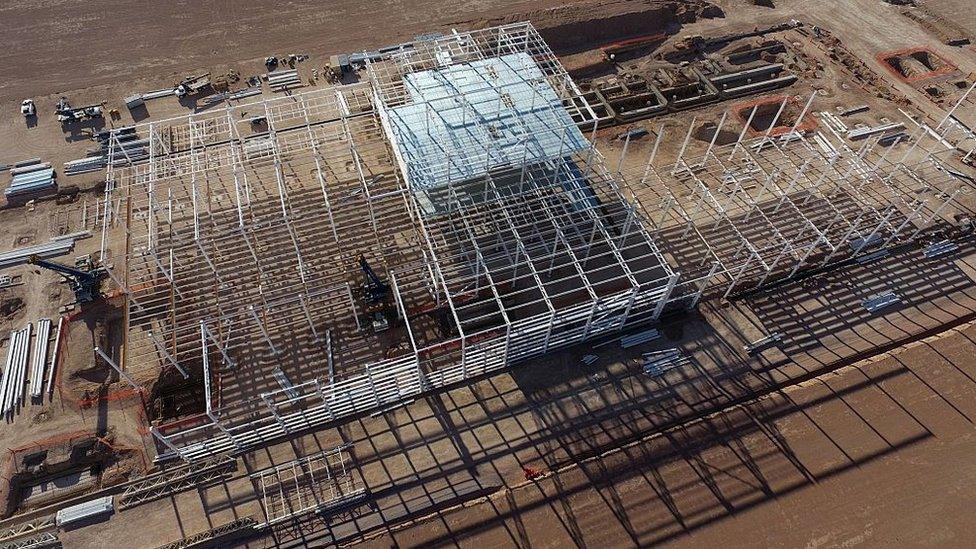
Ford cancelled a project to build a car factory in Mexico
"When the news came out [that] we had the autonomous car coming here, we had it coming up on Facebook and Twitter: 'Thank you Donald Trump!'" he laughs.
"Trump did it already! He's not even in office so, that was a kind of misleading. But he puts it out there and, all of a sudden, any positive news he's going take credit for."
This will be the test of Mr Trump and the media. It is easy to mock the bombast. But the first evidence suggests crude and forceful plans may have played at least a part in changing the mind of a multinational.
More to the point, we have witnessed what may be a trademark of this presidency. He may have been pushing against an open door, but Mr Trump has very loudly portrayed himself as the author of a positive story.
Sophisticated observers may question if he deserves the plaudits but if America applauds he will reap the rewards.
Listen to Mark Mardell's report from Michigan for The World This Weekend via BBC iPlayer. The World at One will be broadcasting from the United States during the week beginning Monday 16 January.
- Published4 January 2017
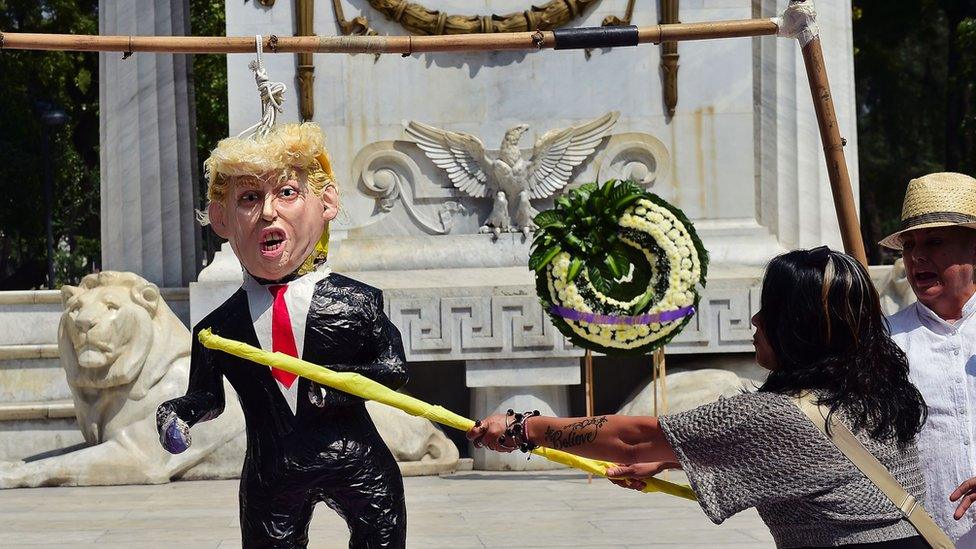
- Published3 January 2017